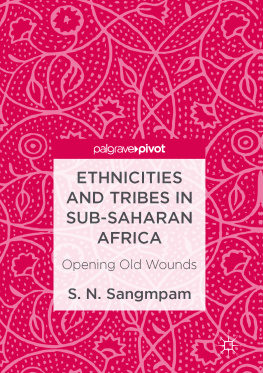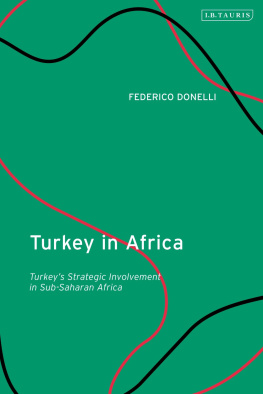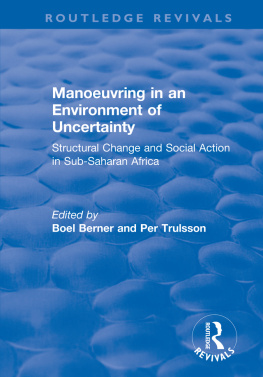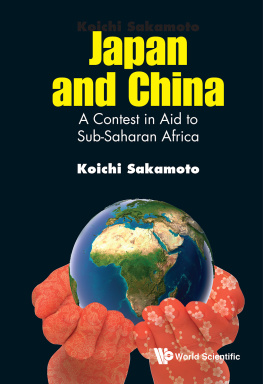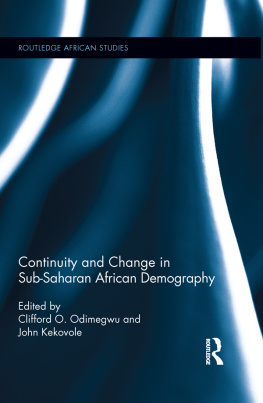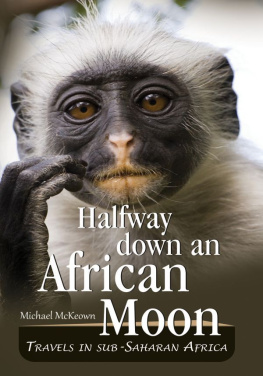1. Introduction
This study deals with two related claims made in the literature on ethnicity in Sub-Saharan Africa (SSA). First, that the population of SSA consists of ethnicities rather than tribes. Second, that colonial rule explains the genesis, saliency, and persistence of tribal allegiance and conflicts in SSA. I argue that both claims are questionable on conceptual, historical, and empirical grounds. Tribes in SSA display a particularity that prevents them from being equated with ethnicity or being viewed as a creation of colonial rule.
When Yoweri Museveni took power in Uganda in 1986, he shunned competitive, multiparty-based politics in favor of a one-man no-party rule. He claimed that democratic rule is not possible in Africa because tribes and tribal interests do not allow for a smooth exercise of democratic rule. He has, for the past 31 years, held this view. This is a view that has also been expressed by many other political leaders in SSA both before and after Museveni took power. There is no doubt that the claim is made to neutralize the opposition and to seize and consolidate authoritarian power for the claimants. Yet, for the recent period, the available evidence does support their claims. In the post-1990 period, when most countries in SSA moved from authoritarianism to democracy, elections and attempts at democratic governance in most of these countries have been driven by tribal considerations. Only a very few countries can defend a record of non-tribal exercise of democracy. There is much anecdotal evidence of this to be found on the internet. In November 2012, for instance, the BBC News site published an opinion piece by Calestous Juma, in which the author argued that tribalism stunts African democracy. Narrow tribal interests, he opined, do not allow the emergence of genuine political parties that compete on the basis of democratic ideas. Instead, these interests thrive on zero-sum games for parochial and self-preservation gains. Juma advocated the creation of idea-driven political parties to replace tribes and to foster democracy. Other similar opinion pieces have flooded the internet. As is often the case in this type of internet-based discussion, there are responses and comments from the readers of the pieces.
In discussing tribalism and democratic change, these postings implicitly, and sometimes explicitly, raise two related issues. The first issue is the nature of tribal identity in SSA. Some of the discussants agree with Juma (and Museveni) that tribalism stems from tribal identity, which is part of and anchored in the mindset of SSA. It is part of the African civilization that differentiates it from Western civilization. As one of the responders put it: The discipline and culture of tribalism as a defining element in the everyday lives of the people [of SSA] supersedes anything that other civilizations may believe they have introducedincluding Christianity and IslamIts workings will remain as much a mystery to most Westerners as it did during the days of Stanley and Livingstone. In other words, for this group of discussants, tribe and tribalism are an almost exclusive attribute of SSA. Other discussants do not view tribal identity as a problem exclusive to SSA, suggesting that it happens all over the world. They point to North America, Europe, and other parts of the world as being equally plagued by ethnic conflicts.
The second issue raised by the internet discussants is the origin and cause of tribal identity. Whereas the author of the BBC News piece acknowledges the role played by colonialism in fostering tribal identity, without unduly accentuating it, other discussants highlight such a role. According to one of them, The artificial boundaries brought about by colonialists in the 1950s, 1960s, and 1970s confined different communities in definite regions. The demarcation created a notion that if you are not from my tribe then you are my enemy.
Anecdotal as they may be, these internet-based discussions raise serious questions about the nature and origin of tribal identity in SSA. Is tribal identity an exclusive attribute of SSA, an intrinsic part of African culture, or is it an invention of colonial rule? And if it is a cultural and civilizational attribute and does not happen all over the world, should it not be referred to differently from the way tribal identity is referred to in other regions of the world? On the other hand, if it is not exclusive to SSA, but happens all over the world, why should it not be referred to in the same way as it is in other regions? These questions point to and echo the debate that has taken place in African studies on ethnicity since the 1970s. The debate has been about the two issues of the nature and origin of tribal identity in SSA that are being raised today in internet discussions.
With respect to the first issuethe nature of tribal identitythe debate revolves around the terms tribe and ethnicity. Those scholars who, like some of the internet discussants, believe that tribal identity is not exclusive to SSA maintain that tribe should be replaced by ethnicity. They argue that, just as the party organizations and politicians of nineteenth and twentieth century America fostered Irish-American, Italian-American, Jewish-American, and, later, Black American ethnic identities, so, too, ethnic, and not tribal, identities have formed in Africa. Tribe and tribalism are, thus, denigrating inventions of the West that need to be rejected. Under the influence and authority of these scholars, the concept of tribe in African studies has been replaced by the concept of ethnicity.
As for the origin and cause of this ethnic identitythe second issuethese scholars trace it to colonialism. It is now taken for granted that ethnicity in SSA was fostered by the colonial state. Daniel Posner goes so far as to proclaim that this paternity of the colonial state is now a settled debate.
The debate raises two core questions. Is the population of SSA made up of ethnicities rather than tribes? And does colonial rule explain the genesis, saliency, and persistence of tribal allegiance and conflicts in SSA? This study tackles these two questions. I argue that, on conceptual, historical, and empirical grounds, the answers to the two questions are in the negative. I develop three main points.
First, manifestations of tribal allegiance in SSA differ from those in other regions. By choosing the term ethnicity, a loose and catchall concept, as a substitute for tribe, the literature falsely equates tribe with ethnicity and obscures this regional difference. Second, by viewing linguistic, religious, racial, and tribal conflicts and cleavages as equal exemplars of ethnic conflicts, the literature wrongly reduces a tribe to a mere component or dimension of ethnicity. Third, by assuming, because of this double misidentification, that ethnic loyalties and conflicts are universally expressed around politics and the state via religious, linguistic, caste, racial, and tribal cleavages, the literature misleadingly privileges the role of the colonial (and postcolonial) state in explaining the saliency and persistence of tribal loyalties and conflicts in SSA. As a result, it fails to engage the exceptional historical trajectory of SSA and the peculiar genesis and manifestations of tribal allegiance in SSA.

